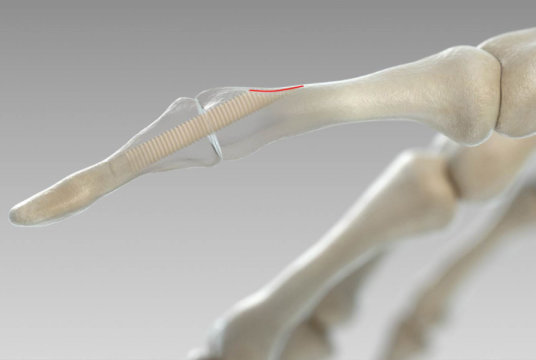Making Surgical Screws from Bones


(Below is an excerpt from article "Making surgical screws from bones" published on ScienceDaily)
Biomechanics from TU Graz, are developing surgical screws from donated human bone material for foot and jaw surgery. To heal broken bones using medical help, the surgical method of choice for decades have been metal screws, mainly made of titanium or stainless steel. During and after the healing process, these metal screws are seen by the body as disturbing foreign bodies and often have to be removed in a further unpleasant surgical intervention.
Together with TU Graz's Institute of Biomechanics, in 2013 orthopaedist Klaus Pastl developed an alternative: the "Shark Screw," made of the specially compact and hard middle layer of the human thigh bone (femur). So what exactly are the advantages of screws made of donated bone material? The metal doesn't have to be removed and a second operation doesn't have to be carried out because the donated material has completely healed into the bones. So well healed that the transplant is no longer visible in an x-ray after one year.
In maxillary surgery, extremely small screws are necessary, approximately 20 mm long, which have to withstand great stresses. Because relative to size, the jaw muscle is the most powerful muscle in the human body. In foot surgery, although the screws are bigger, between four and six centimetres long, they are also exposed to large forces, for instance bending forces in surgical corrections."
The design of the thread of the screws alone has an enormous effect on the bending and shear strength and breaking torque. Researchers have to investigate and understand the forces active in the bone structure of the foot and jaw. In general there is a big difference between working with metal screws and screws made of biomaterial. The mechanical principles are the same, but we also have to consider that donated bone material shrinks somewhat during sterilisation and two hours after the operation expands again in the body and becomes more elastic.
The Shark Screw is being produced from the start-up surgebright, which was founded in 2016. The patented technology is already being used in 14 Austrian hospitals.








